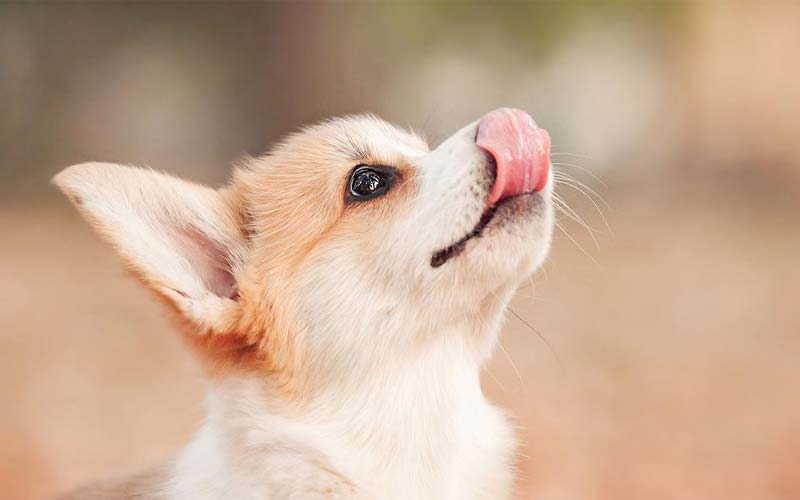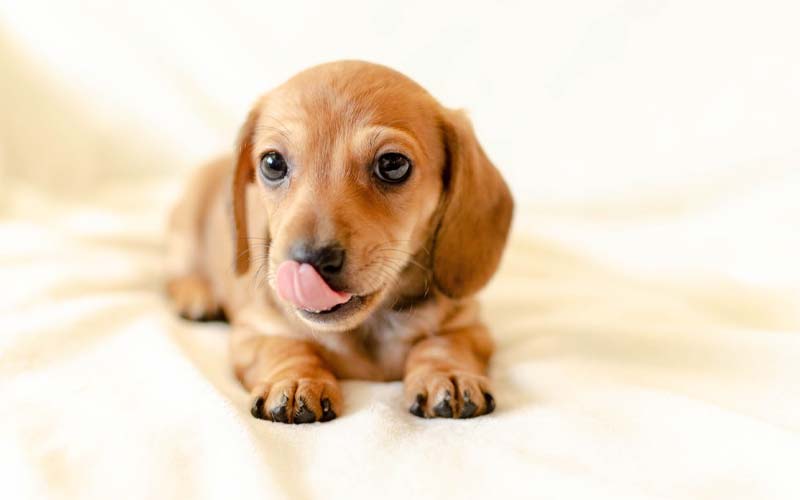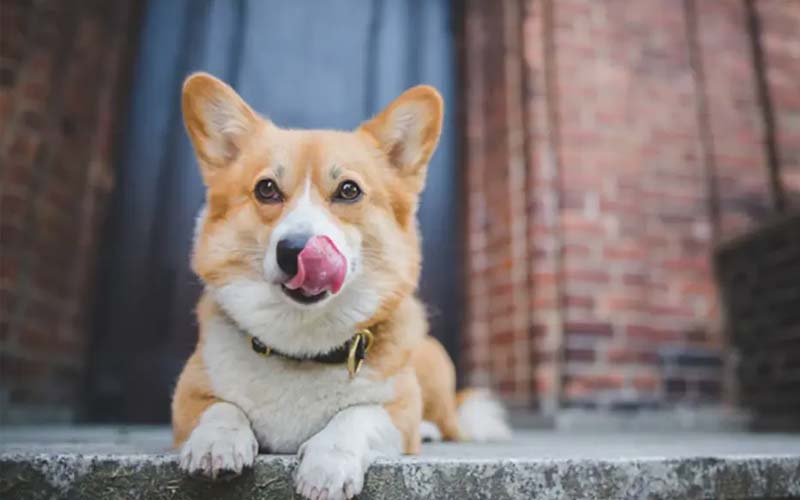Ever wonder why your furry friend showers you with licks when you’re sad? Explore the science behind dog empathy and their comforting canine kisses.

The Science of Dog Empathy
Dogs are known for being loyal, affectionate, and empathetic animals. They can sense our emotions and respond accordingly. But how do they do it?
Researchers have found that dogs have a special brain region called the temporoparietal junction (TPJ), which is involved in perspective-taking and empathy. This region allows dogs to understand the emotional states of others and act accordingly.
Dogs also have a hormone called oxytocin, which is released when they interact with humans or other dogs. Oxytocin is associated with social bonding, trust, and love. It helps dogs form strong attachments with their owners and feel empathy for them.
Dog Communication Through Licking
Licking is one of the ways dogs communicate with each other and with humans. It has different meanings depending on the context and the relationship between the licker and the licked.
For example, licking can be a sign of submission, respect, or affection among dogs. A lower-ranking dog may lick a higher-ranking dog to show deference or appeasement. A dog may also lick another dog to groom them or express friendship.
Licking can also be a way of exploring or learning about the environment. Dogs use their tongues to taste, smell, and feel things around them. They may lick objects, people, or themselves to gather information or satisfy their curiosity.
When dogs lick humans, especially their faces, they may be trying to communicate something. They may be asking for attention, food, or play. They may be expressing gratitude, happiness, or excitement. They may be seeking comfort, reassurance, or security.

Breeds Predisposed to Licking Behavior
Some dog breeds are more likely to lick than others, due to their genetic traits, temperament, or history. Here are some of the most common licking breeds:
- Golden Retrievers: These dogs are friendly, loyal, and eager to please. They love to show affection and gratitude to their owners by licking them.
- Labradors: These dogs are energetic, playful, and sociable. They enjoy licking as a way of greeting, bonding, or having fun with their owners.
- Poodles: These dogs are intelligent, loyal, and sensitive. They can sense their owners’ emotions and lick them to comfort or cheer them up.
- Boxers: These dogs are lively, loyal, and protective. They lick their owners to show respect, affection, or excitement.
- Basset Hounds: These dogs are gentle, friendly, and stubborn. They have a strong sense of smell and taste, and they lick their owners to explore or satisfy their curiosity.
Beyond Comfort: Other Reasons Dogs Lick
While licking can be a sign of empathy and comfort, it can also have other causes that are not related to your emotions. Some of the possible reasons are:
- Health issues: Dogs may lick themselves or their owners excessively due to skin problems, allergies, infections, pain, or stress. They may also lick to cope with boredom, anxiety, or compulsive behavior.
- Salt: Dogs may lick your face when you cry because they are attracted to the saltiness of your tears. They may also lick your sweat, wounds, or medications for the same reason.
- Reinforcement: Dogs may lick you because they have learned that it gets them a positive response from you, such as praise, attention, or treats. They may also lick you to avoid punishment or negative consequences.

Tips for Responding to Your Dog’s Licks
How you react to your dog’s licks can affect their behavior and your relationship. Here are some tips for handling your dog’s licks:
- Be consistent: Decide whether you want to encourage or discourage your dog’s licking, and stick to it. Don’t send mixed signals by allowing licking sometimes and rejecting it other times.
- Be gentle: If you want to stop your dog from licking you, don’t yell, hit, or push them away. Instead, use a calm and firm voice to say “no” or “stop”. You can also redirect their attention to something else, such as a toy, a treat, or a command.
- Be positive: If you want to reward your dog for licking you, show them your appreciation by smiling, petting, or praising them. You can also give them a treat, a toy, or a game as a reward.
- Be respectful: Understand that your dog’s licking is a natural and instinctive behavior that has many meanings and functions. Don’t force your dog to lick you or stop licking you if they don’t want to. Respect their preferences and boundaries, and they will respect yours.